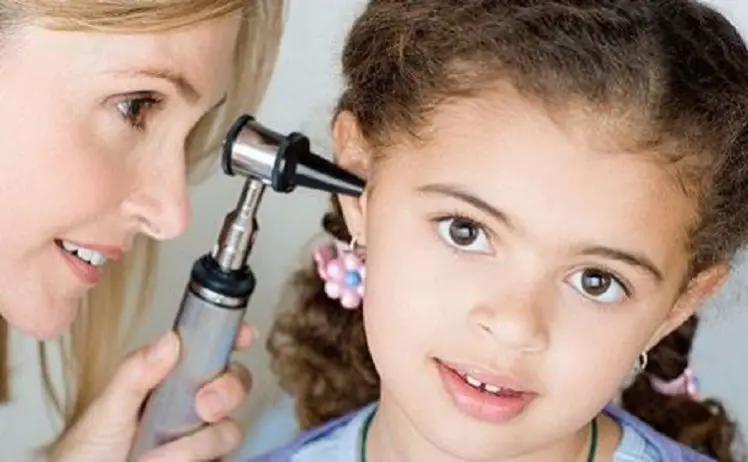What is an Audiologist? – Ear Doctor
What is an Audiologist? Ear Doctor hearing specialist
An audiologist is a specialist in conducting highly accurate hearing tests. If the regular doctor cannot make sense of a patient’s hearing problems, he or she will be referred to the audiologist.
An Audiologist is a general practitioner who subsequently completed a 4-year specialty and who deals with problems of hearing, voice, speech, vertigo and dizziness.
The audiologist is related to other sciences such as Otolaryngology, Neurology, Language Therapy and many times he or she is related to these specialists for the integral management of the patient.
Audiometry
Audiometry a test performed by an audiologist or hearing specialist, which helps to know if a person can hear sounds and at what intensity they perceive them. This test can detect hearing loss and its characteristics.
In some hearing-impaired patients, there may be problems in detecting sounds. According to the distortions in volume or strength and other characteristics of the sounds.
The sound is based on a sound wave, which can enter the patient with hearing problems distorted.
Audiometry measures the patient’s ability to hear sound waves well. Hearing occurs when the ear receives sound waves, which reach the nerves in the patient’s inner ear. This causes sounds to be heard more or less clearly.
Many people do not know what audiometry is, which is important because with it, you can tell whether the loss is mild, medium or severe. According to the results, treatment or the use of hearing aid will be diagnosed.
What is a hearing care professional?
An audiologist is an expert in audiology, the medical specialty that is concerned with measuring and correcting the hearing function.
The most crucial difference with other audiological specialists such as the audiologist and ENT doctor is that the hearing care professional specializes in hearing aids and audiological equipment, while the other two focus primarily on diagnosing and treating complaints.
What does a hearing care professional do?
Hearing care professionals examine people’s hearing function and, if necessary, measure a hearing aid.
Their activities generally consist of the following:
- Performing extensive hearing examinations (audiometry)
- Discussing the complaints and options with clients (possibly referring them to a doctor or audiologist)
- Advising new hearing aids and other hearing products
- Adjusting the hearing aid
- Explaining the operation and maintenance of the hearing aid
- Checking and repairing hearing aids
- Measuring or adjusting hearing protectors, earpieces and swimming pieces
- Sending damaged devices to the supplier
- Keeping data of clients (also about health insurance)
The most important tests that a hearing care professional performs are the following:
- Tone audiogram
- The client hears beeps of different heights and loudness and indicates whether he can listen to them.
- Speech audiogram
- The client hears words of different loudness and repeats them.
- Loudness
- measurement Here, the hearing threshold is measured: when does someone experience a sound as loud or soft.
- Speech in noise test
- It is checked whether someone can understand speech when there is interference noise.
- Directional hearing test
- It is tested whether someone can indicate from which direction a sound is coming.
What is an Audiometry?
Audiometry is a test performed by an audiologist or hearing specialist, which allows us to know if a person can hear sounds and at what intensity they perceive them. In this study, hearing loss and its characteristics can be detected.
In some patients with hearing problems, there may be problems in detecting sounds. According to the distortions in volume or strength, as well as the intensity and other characteristics of the sounds. The sound is based on a sound wave, which can enter the patient with hearing problems distorted.
Audiometry measures a patient’s ability to hear sound waves correctly. Hearing occurs when the ear receives the sound waves, which reach the nerves in the patient’s inner ear. This causes sounds to be heard more or less clearly.
Many people do not even know what audiometry is, which is of vital importance, because with it, you can tell whether the loss is mild, medium or severe. Based on that, treatment or the use of hearing aid will be diagnosed.
If you need to know more about this concept and why it is essential for your health, here is our article What is audiometry and what is it for?
What is phoniatrics?
A phoniatrist is a certified physician who studies communication diseases in his patients. He diagnoses which are the appropriate treatments for his patients, according to the level of impairment to communicate.
On the other hand, what is phoniatrics? It is an area of medical science that studies communication diseases. Among them are language disorders: speech, voice, listening, oral motor skills, among others. In other words, it is an area in which listening and speaking problems are studied.
Audiology and Hearing Aids
In this video, we show you the research of audiology in hearing aids. You will also see an expert talking about the characteristics and uses of hearing aids in people.
In this video you see children in an audiometry test, so you can see later the result of the use of a hearing aid in what they have hearing loss, and how this device helps them to improve their hearing.
Also, the specialist discusses the types of hearing aids on the market, each with different features and benefits, especially in hearing aids for children. However, she takes into account that listening problems can occur at any age, so having a study and acquiring a hearing aid is essential!
Do you want to work as an Audiologist?
Are you already working as an Audiologist and looking for a new job? Or do you want to become an Audiologist? Do you want to know the average salary? Everything you need is on https://www.rushu.rush.edu/news/what-audiologist-and-why-should-i-become-one.

